Both houses were built and carved skillfully, reflecting the technique as well as the aesthetic tastes of people in the past. The house owned by Tran Cong Vang was built in 1889 with the architecture of a Ruong (wooden house). The house looks short from the outside but inside it is quite airy and spacious thanks to a system of high pillars and columns. All the feet of the pillars, the roof, furniture, horizontal lacquered boards, scrolls and four-season paintings were red lacquered and mother-of-pearl inlaid, giving the house a magnificent and solemn beauty. The house has a corridor around the worshipping hall that leads to a sitting room and bed rooms without going through the worshiping hall to ensure its solemnity.
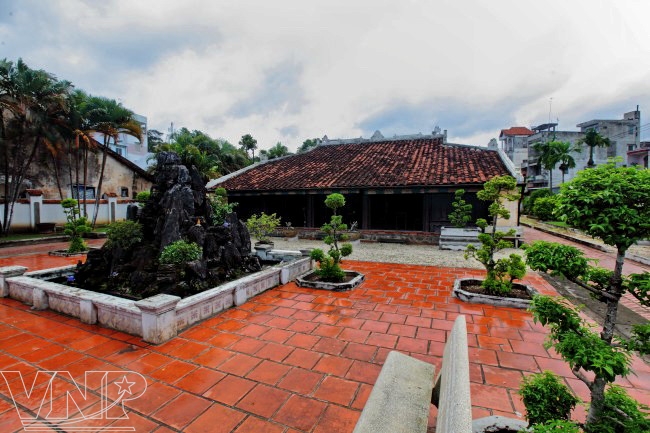 The front yard of Ho’s house has bonsai, a miniature rock mountain and ornamental plants. 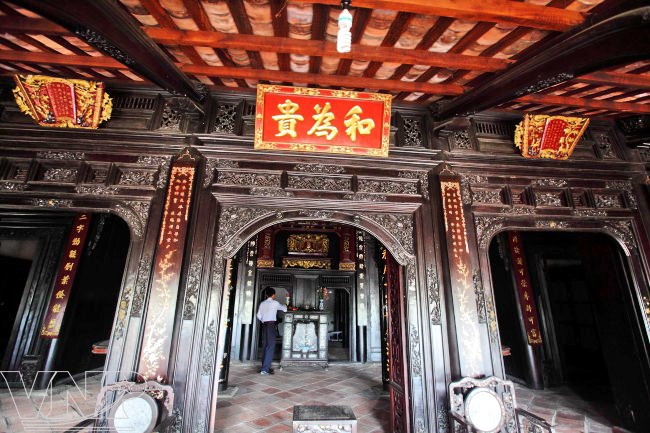 Inside the ancient house owned by Tran Van Ho. 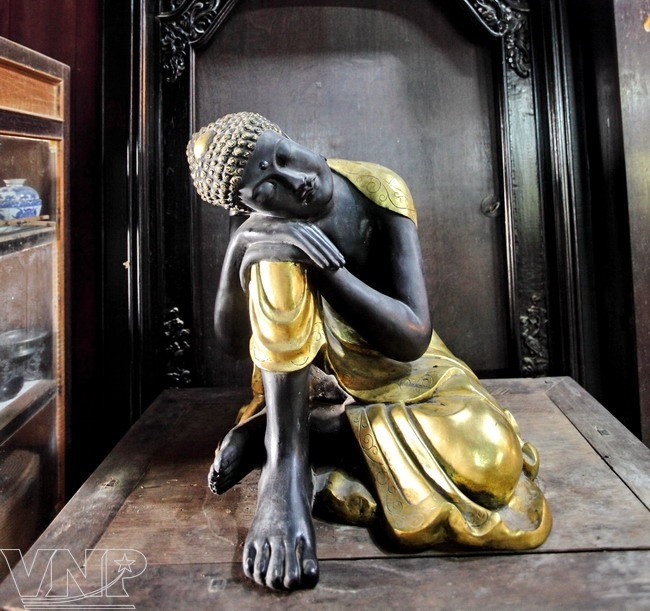 A wooden statue of Buddha displayed at the ancient house of Tran Cong Vang. 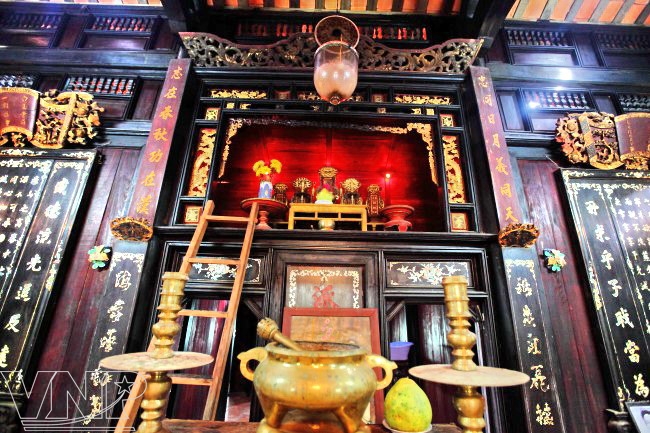 The worshipping-hall of Vang’s house. 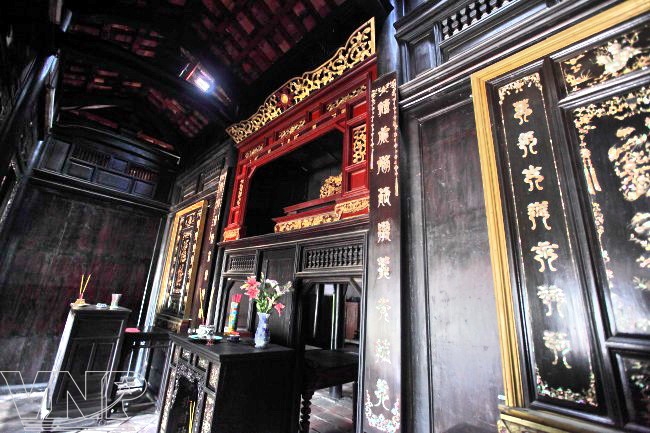 The worshipping-hall of Vang’s house. 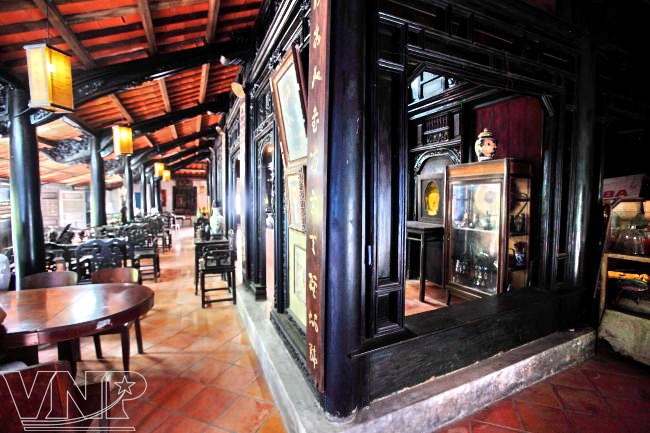 The anteroom in Vang’s house. 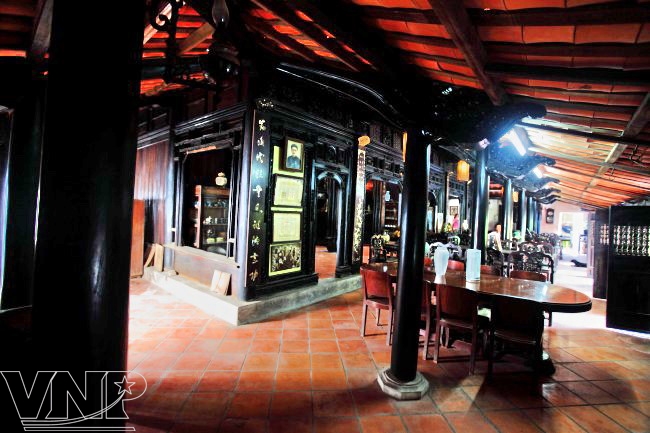 Vang’s house was built with the architectural style of a Ruong house in Hue. 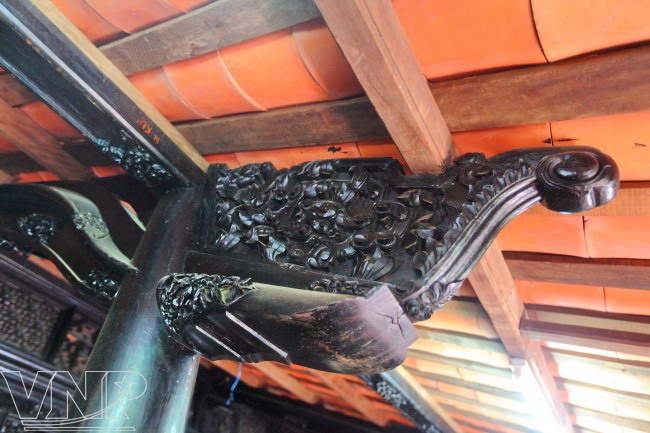 Skillfully carved patterns in the ancient house of the Tran Family. 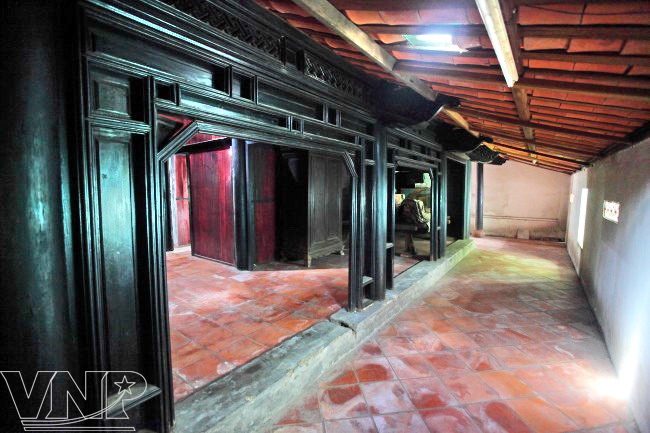 The corridor surrounding the worshipping hall in Vang’s house. |
The remaining house of Tran Van Ho was built in 1890 in the shape of the Chinese letter “Dinh”. In the front yard are bonsai, rock-work and ornamental plants. The house is roofed by yin and yang tiles imbued with the traditional architecture of the Vietnamese people. The most salient feature of the house is carved patterns like unicorns, leaves, phoenixes and creepers. The style of the interior decorations with parallels, couplets and a worshipping cupboard also highlights the ancient beauty of the house.
The main materials to build these houses were precious timber, such as Cam lai (Dalbergia bariaensis Pierre), Giang huong (Pterocarpus macrocarpus) and Sen (Madhuca pasquieri H.J.Lam). Over time, this wood has become a shiny black that has combined with the red and gold colour of parallels and couplets and the shiny silver of mother-of-pearl. They highlight the beauty of the houses and show the prosperity and aristocracy of the house owners from the past. More importantly, the former owners of these houses knew to combine all factors of the traditional architecture of the Vietnamese people, creating harmony between the house and its surrounding landscape. Besides the aesthetic and architectural values, these houses reflect the cultural, economic and social factors of the upper classes in the 19th century. For this reason, these houses are considered a type of unique heritage in Vietnam.
The main materials to build these houses were precious timber, such as Cam lai (Dalbergia bariaensis Pierre), Giang huong (Pterocarpus macrocarpus) and Sen (Madhuca pasquieri H.J.Lam). Over time, this wood has become a shiny black that has combined with the red and gold colour of parallels and couplets and the shiny silver of mother-of-pearl. They highlight the beauty of the houses and show the prosperity and aristocracy of the house owners from the past. More importantly, the former owners of these houses knew to combine all factors of the traditional architecture of the Vietnamese people, creating harmony between the house and its surrounding landscape. Besides the aesthetic and architectural values, these houses reflect the cultural, economic and social factors of the upper classes in the 19th century. For this reason, these houses are considered a type of unique heritage in Vietnam.
| According to Dai Nam Nhat Thong Chi (the Essays on the United Great Vietnam), Binh Duong belonged to Phien An Town in the middle of the two districts of Binh Duong and Phuoc Long. With a dense popularity, it was once the most bustling and gaudy area of Gia Dinh and no place in the country could be compared to it. |
Story: Nguyen Vu Thanh Dat – Photos: Huu Thanh



